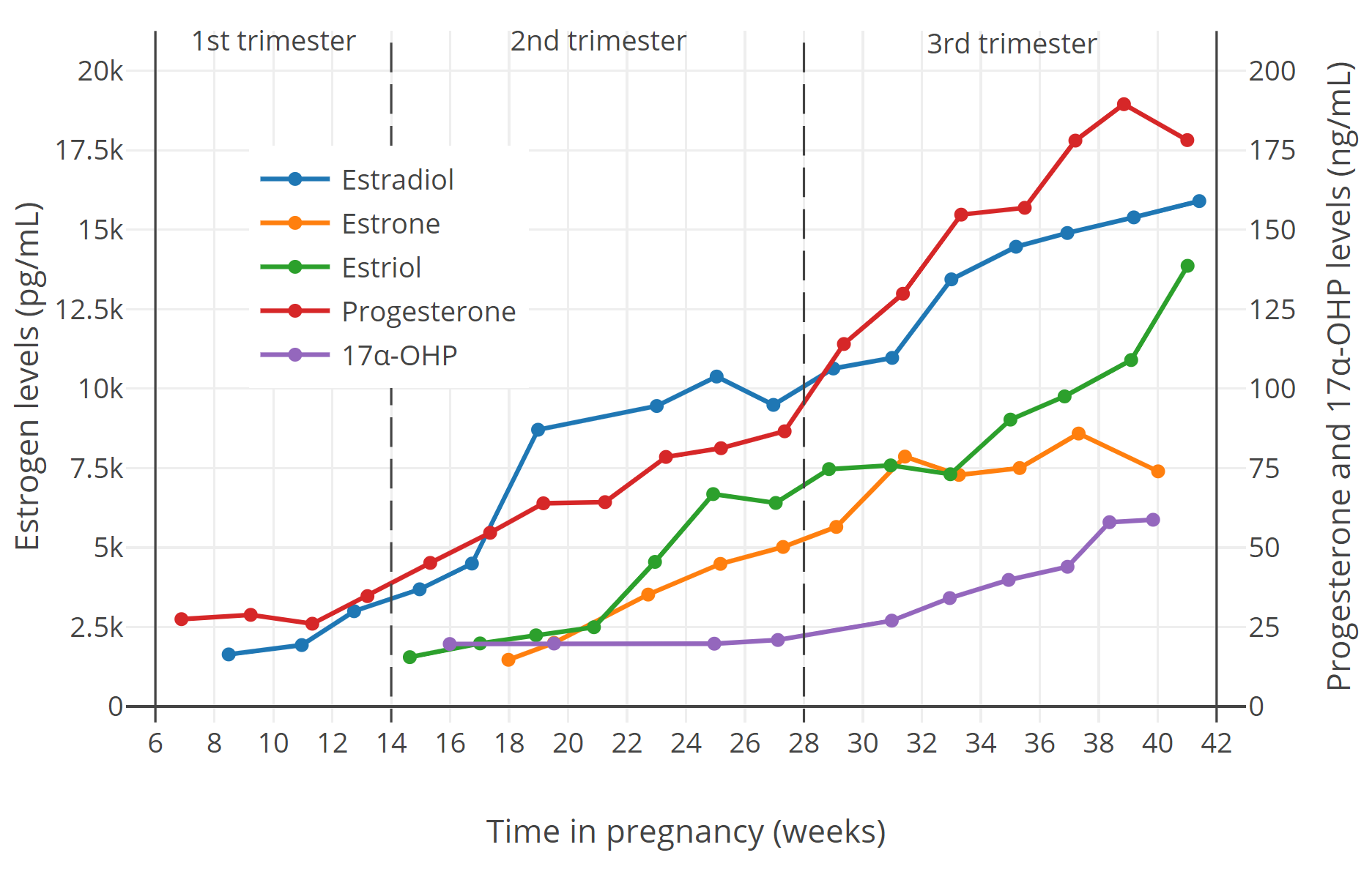
Progesterone Levels During Early Pregnancy
Progesterone is a hormone produced by the corpus luteum, a small gland that forms on the ovary after ovulation. Progesterone plays a crucial role in preparing the uterus for pregnancy and maintaining it during the early stages.
Physiological Role of Progesterone
- Endometrial Changes: Progesterone promotes the development of a thick, vascularized endometrium, the lining of the uterus. This prepares the uterus for implantation of the fertilized egg.
- Cervical Mucus: Progesterone thickens cervical mucus, creating a barrier that prevents sperm and bacteria from entering the uterus.
- Myometrial Relaxation: Progesterone relaxes the uterine muscles, reducing contractions and preventing premature labor.
- Immune Modulation: Progesterone suppresses the immune system, preventing the body from rejecting the developing embryo.
Progesterone Levels in Early Pregnancy
Progesterone levels rise rapidly after ovulation and peak around 8-10 weeks of gestation. This surge is essential for maintaining the pregnancy. If progesterone levels are too low, the endometrium may not be adequately prepared for implantation, or the uterus may become too contractile, leading to miscarriage.
Normal Progesterone Levels
The normal range of progesterone levels during early pregnancy varies slightly depending on the laboratory and the gestational age. However, generally, the following ranges are considered normal:
- Weeks 4-6: 5-25 ng/mL
- Weeks 7-9: 10-40 ng/mL
- Weeks 10-12: 15-50 ng/mL
Monitoring Progesterone Levels
Progesterone levels are typically measured through a blood test. Your healthcare provider may recommend monitoring progesterone levels if you have a history of miscarriage, infertility, or other pregnancy complications.
Low Progesterone Levels
Low progesterone levels during early pregnancy can be a sign of:
- Corpus luteum insufficiency
- Threatened miscarriage
- Ectopic pregnancy
- Blighted ovum
Treatment for Low Progesterone Levels
If your progesterone levels are low, your healthcare provider may prescribe progesterone supplements. These supplements can help to:
- Improve endometrial receptivity
- Reduce uterine contractions
- Support the developing embryo
High Progesterone Levels
High progesterone levels during early pregnancy are less common. They can be a sign of:
- Multiple pregnancies
- Gestational trophoblastic disease
- Certain types of cancer
Factors Affecting Progesterone Levels
Several factors can affect progesterone levels during early pregnancy, including:
- Ovarian Function: The corpus luteum is responsible for producing progesterone. If the corpus luteum is not functioning properly, progesterone levels may be low.
- Placental Development: As the placenta develops, it begins to produce progesterone. This can lead to a gradual increase in progesterone levels over time.
- Stress: Chronic stress can lower progesterone levels.
- Medications: Certain medications, such as corticosteroids and anti-inflammatory drugs, can interfere with progesterone production.
Conclusion
Progesterone is a critical hormone for maintaining early pregnancy. Monitoring progesterone levels can help to identify potential problems and ensure a healthy pregnancy. If you have any concerns about your progesterone levels, it is important to discuss them with your healthcare provider.